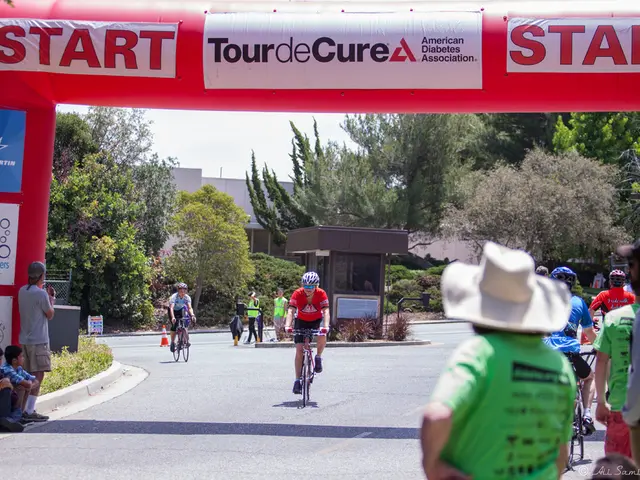Weight Loss Landscape Shifts: From Group Sessions to Injection Therapies
- by Lutz Meier
- 2 Min
Diet Industry Overtaken by Prevalence of Weight-Loss Injections - Weight Watchers Urges Industry Shift: Injectable Weight Loss Solutions Now Key Players in Diet Market
Weight Watchers' recent bankruptcy filing serves as a stark reminder of the evolving weight loss industry. Established in New York City 62 years ago, the company filed for bankruptcy protection in the U.S. to shed billions worth of debt. Despite business as usual for now, the company's financials show a significant downturn, with annual revenue dropping by half since 2018, to $786 million.
Weight Watchers' business model relied heavily on self-help group meetings, where overweight individuals paid to attend weekly gatherings with like-minded individuals, and a program involving point-counting while eating to encourage healthier habits. Additionally, they sold special diet foods and licensed them to other companies.
However, modern society's views on weight loss and body norms are shifting, and traditional methods like Weight Watchers are no longer resonating with potential customers. In response, the company has attempted to evolve by offering weight loss apps, fitness tracker programs, and telemedicine services. Unfortunately, these efforts came too late, as Weight Watchers struggled to maintain a foothold amidst a wave of competition.
COVID-19 further accelerated the company's downfall, prompting significant layoffs of Weight Watchers' coaches and a quicker shift away from group meetings.
Oprah Bids Farewell to Weight Watchers, Embraces Weight Loss Injections
Even Weight Watchers' most prominent endorser, Oprah Winfrey, has abandoned ship. In 2015, Oprah became a significant stakeholder, receiving 10% of the company's shares and a board seat. However, she stepped down in 2024, selling her devalued shares and donating the proceeds. Later, Oprah revealed that she now trusts weight loss injections for weight management.
In the past two years, weight loss injections have gained traction, with Novo Nordisk (Denmark) and Eli Lilly (USA) leading the way. Marketed under brands like Ozempic, Wegovy, and Zepbound, these injections have revolutionized the weight loss approach, particularly in the U.S. and other countries, where individuals are increasingly opting for these medical interventions over lifestyle changes. Manufacturers like Novo Nordisk have seen unprecedented success, with the company briefly becoming Europe's most valuable stock market asset.
The surge in weight loss medications is due in part to manufacturers finally meeting the growing demand for these treatments. Previously, the popularity of these drugs was somewhat limited due to supply shortages. Eli Lilly reported successful studies with weight loss pills in April and plans to launch them in the market next year.
Traditional Weight Loss Companies Struggle for Survival
As more people turn to weight loss medications, traditional weight loss companies like Weight Watchers are struggling to adapt and remain competitive. The shift in consumer preferences, intensified competition, and decreased demand for traditional programs have taken a toll on their market share and revenue.
Faced with these challenges, companies like Weight Watchers have begun diversifying their offerings, incorporating digital solutions and focusing on holistic healthcare services. However, it remains to be seen if these efforts will be enough to reverse the trend.
- Weight Watchers
- Pharmaceutical Industry
- Weight Loss Program
- Novo Nordisk
- In light of the evolving weight loss landscape, community and employment policies at Weight Watchers may need to be reassessed, focusing on digital solutions and holistic health-and-wellness programs to stay competitive.
- The surge in popularity of weight loss therapies and treatments, such as those offered by Novo Nordisk, has sparked a shift in the employment policy within the weight loss industry, as more individuals seek medical interventions over traditional programs.







